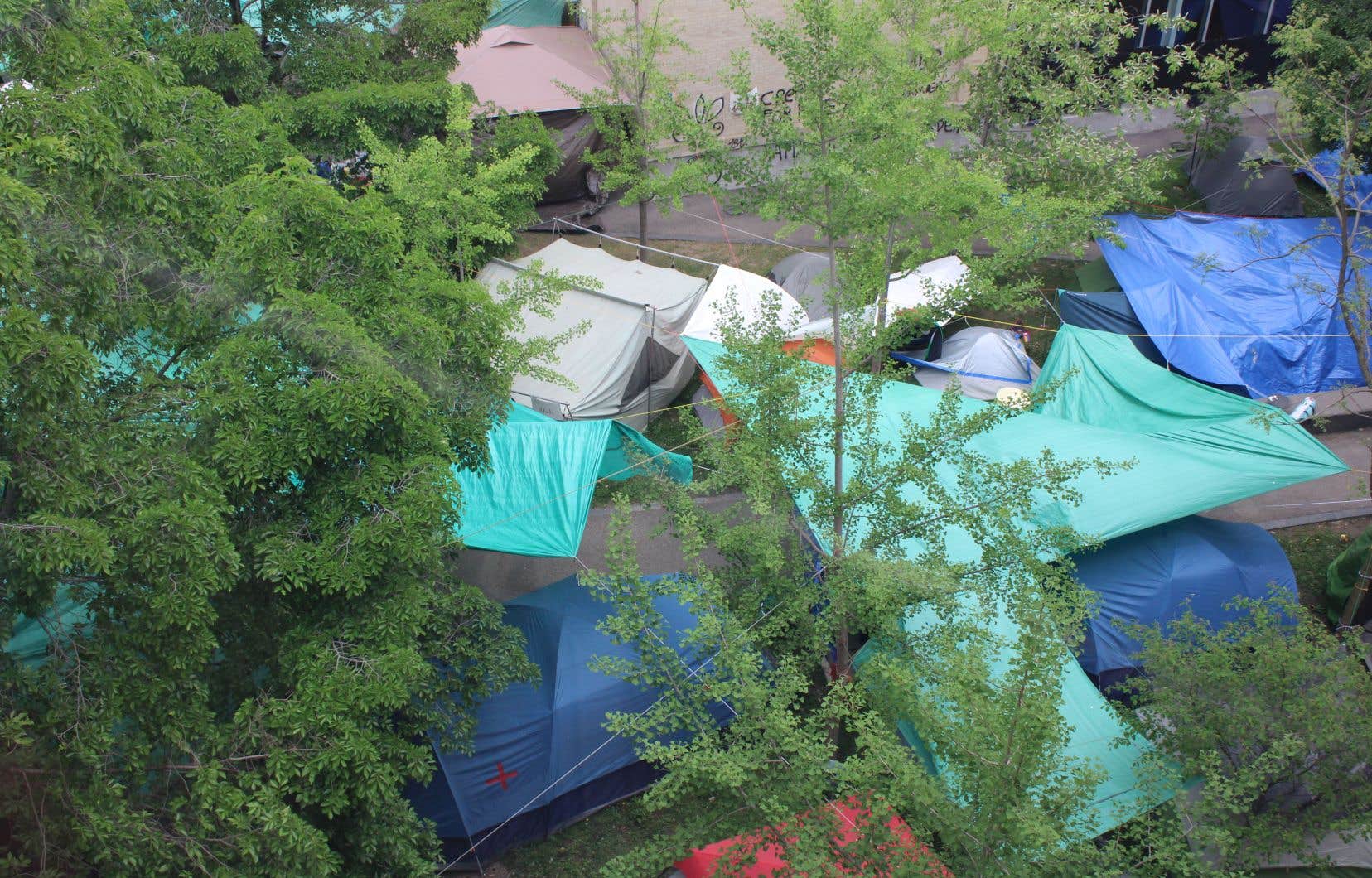Members of the pro-Palestinian camp, which has grown in recent days on the grounds of the University of Quebec in Montreal (UQAM), were injured Monday afternoon as part of a heavy-handed police intervention aimed at stopping peaceful protests in the heart of the metropolis.
Sergio, a Concordia University student who was among the members of the camp set up on May 12 near the Pierre-Dansereau Science Complex at UQAM, is one of the students injured on Monday as part of this police intervention. The young man, who was met on Tuesday in front of the site of this occupation, requested anonymity for security reasons, as did the other three students contacted for this report.
“They hit us while we were on the ground. They did not allow people to retreat. They were only looking for violence,” says Sergio, who was injured in the nose and several punches in the stomach during this police action.
By email, the SPVM confirmed that it intervened in the area on Monday after “barricades” were set up around 3:30 p.m. “to block avenue du Président-Kennedy and boulevard de Maisonneuve, between rue Jeanne-Mance and rue Saint – Urban, in the Ville-Marie district.”
“When the police intervened on the spot to disperse the protestors, they rushed towards the policemen, attacking them with various objects, and it was at that moment that chemical irritants were used, and the policemen had to use a baton to repel the protestors,” continues the police. The latter subsequently managed to “clear the traffic routes” that were blocked during this mobilization.
Videos of the event are circulating on social networks they show dozens of emergency police advancing straight towards the protesters who opened umbrellas in front of them to protect themselves. These videos show police attacking protesters on the ground and firing tear gas to disperse them.
However, it was a mobilization that was initially conceived as “solemn” and “peaceful”, believes a UQAM student who condemns the police intervention to stop this rally, which he was helping. “The police used batons, pepper (cayenne) and tear gas at long range; they pushed people from rue Saint-Urbain all the way here,” says this student, who claims that “several campers were injured” during this action.
“There was a lot of beating. The police fired bullets directly at the protesters using their rifles firing tear gas,” added another UQAM student he met on Tuesday. “People received him on the chest, on the legs and on the face,” he enumerates.
Surveyed by DutySPVM refused to state whether people were arrested as part of this police intervention “to prevent any influence on a possible judicial, ethical or disciplinary process”.
“Our priority is to avoid an escalation of violence. Conflicts and violence, this is not Montreal”, reacted the office of the mayor of Montreal, Valerie Plantewho reminds that “everyone has the right to a peaceful protest”.
The mayor, however, asks the members of this camp to “maintain a dialogue” with their university. “Exchanges must continue peacefully to preserve the peace that characterizes Montreal,” she adds.
In writing, the coordinator and spokesperson of the League of Rights and Freedoms, Laurence Guénette, for her part, condemned the “police brutality” that injured “several protesters” on Monday. That’s what she called Mme Plante and SPVM to “guarantee respect for freedom of expression, the right to protest as well as the physical integrity of protesters” in the metropolis.
A growing camp
The police presence was also significant on Tuesday around this camp, where there are now several dozen tents surrounded by fences. Several signs were also placed in front of the entrance to the camp on Monday, where a few protesters were sipping coffee under the watchful eye of police officers who were circling the area on foot and in cars.
Last Friday, May 17, the rector of UQAM, Stéphane Pallage, met with representatives of the camp, who asked the Quebec university to commit not to maintain academic ties with Israel. The university then condemned this camp for blocking access to some of its buildings.
“Currently, access is still difficult despite repeated requests from the University since the camp was set up. Tenants have been informed that UQAM will take action if these central elements are still not respected,” the email to Duty director of communication of the institution, Jenny Desrochers.
The latter, however, specifies that a significant police presence around this camp did not follow the request of UQAM.
